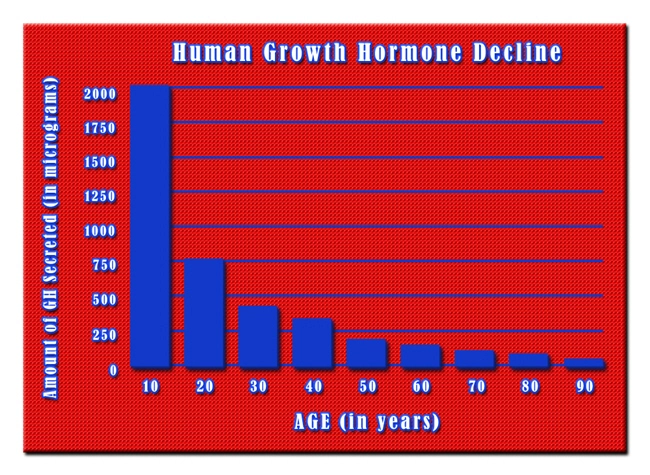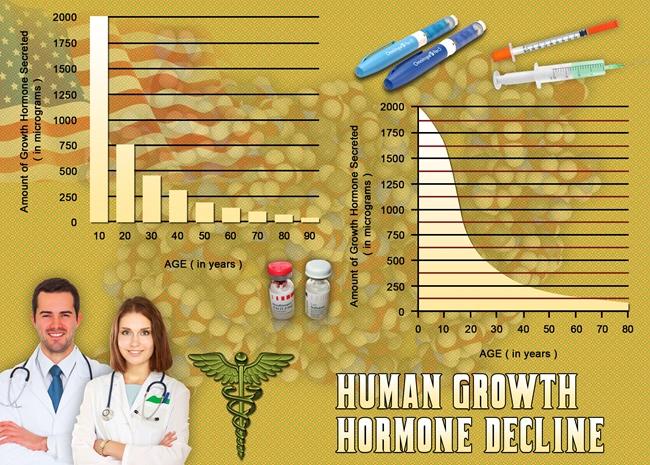
Understanding Soft Erections
Soft erections, medically known as erectile dysfunction (ED), are a common concern among American men, affecting their quality of life and intimate relationships. ED is characterized by the inability to achieve or maintain an erection sufficient for satisfactory sexual performance. While it can be a distressing issue, understanding its causes and seeking appropriate treatment can significantly improve outcomes.
Causes of Soft Erections
The etiology of soft erections is multifaceted, often involving a combination of physiological and psychological factors. Common physiological causes include vascular diseases, diabetes, hypertension, and hormonal imbalances. Lifestyle factors such as smoking, excessive alcohol consumption, and obesity can exacerbate these conditions. Psychologically, stress, anxiety, depression, and relationship issues can contribute to ED. It is crucial for men to recognize that ED is not merely a natural part of aging but a medical condition that warrants attention and treatment.
The Importance of Collaborative Healthcare
Addressing soft erections effectively requires a collaborative approach involving various healthcare professionals. This multidisciplinary team may include primary care physicians, urologists, endocrinologists, psychologists, and sex therapists. Each specialist brings unique expertise to the table, ensuring a comprehensive evaluation and tailored treatment plan.
Diagnostic Approaches
The initial step in managing soft erections is a thorough medical evaluation. This typically involves a detailed medical history, physical examination, and possibly blood tests to assess hormone levels and other relevant markers. Depending on the findings, additional tests such as penile Doppler ultrasound or nocturnal penile tumescence testing may be recommended to further evaluate vascular and neurological function.
Treatment Options
Treatment for soft erections is highly individualized, based on the underlying cause and the patient's overall health. Lifestyle modifications are often the first line of intervention, including adopting a healthy diet, regular exercise, smoking cessation, and limiting alcohol intake. For those with psychological contributors, therapy or counseling can be beneficial.
Medications such as phosphodiesterase type 5 (PDE5) inhibitors, including sildenafil and tadalafil, are commonly prescribed and have proven effective for many men. In cases where medications are ineffective or contraindicated, other treatments such as vacuum erection devices, penile injections, or penile implants may be considered. For men with hormonal imbalances, testosterone replacement therapy might be appropriate.
The Role of the Patient
Patient engagement is crucial in the management of soft erections. Men are encouraged to openly discuss their symptoms and concerns with healthcare providers, fostering a trusting relationship that facilitates effective communication and treatment adherence. Education about the condition and its management can empower men to take an active role in their health journey.
Future Directions in ED Management
Ongoing research continues to advance our understanding of ED and its treatment. Innovations such as regenerative medicine, including stem cell therapy, hold promise for future management strategies. Additionally, the development of new pharmacological agents and non-invasive treatment modalities is an area of active investigation.
Conclusion
Soft erections are a prevalent issue among American men, but with a collaborative healthcare approach, effective management is achievable. By understanding the causes, engaging with a multidisciplinary team, and adhering to personalized treatment plans, men can improve their sexual health and overall well-being. As research progresses, the future holds even more promising solutions for those affected by ED.
Contact Us Today For A Free Consultation
Dear Patient,
Once you have completing the above contact form, for security purposes and confirmation, please confirm your information by calling us.
Please call now: 1-800-380-5339.
Welcoming You To Our Clinic, Professor Tom Henderson.

- Decoding the Enigma of Soft Erections: A Comprehensive Exploration [Last Updated On: February 25th, 2025] [Originally Added On: February 25th, 2025]
- Unveiling the Complexities behind Reduced Virility: A Journey into the Science of Soft Erections [Last Updated On: February 26th, 2025] [Originally Added On: February 26th, 2025]
- Broadening the Masculine Spectrum: Navigating Soft Erections Confidently [Last Updated On: February 27th, 2025] [Originally Added On: February 27th, 2025]
- Transforming Sexual Health: Enhancing Male Virility through Holistic Lifestyle Adjustments [Last Updated On: February 28th, 2025] [Originally Added On: February 28th, 2025]
- Unheard Voices: Understanding and Navigating Soft Erections [Last Updated On: February 28th, 2025] [Originally Added On: February 28th, 2025]
- Understanding the Nexus: Psychological Stress and Its Impact on Erection Function [Last Updated On: March 1st, 2025] [Originally Added On: March 1st, 2025]
- Demystifying Men's Health: Understanding Erectile Resilience and its Multifaceted Dimensions [Last Updated On: March 2nd, 2025] [Originally Added On: March 2nd, 2025]
- Enhancing Erectile Function Through Exercise: Understanding the Role of Physical Activity in Improving Sexual Health and Erection Quality [Last Updated On: March 3rd, 2025] [Originally Added On: March 3rd, 2025]
- Nutrition's Role in Enhancing Male Erectile Function and Health [Last Updated On: March 4th, 2025] [Originally Added On: March 4th, 2025]
- Soft Erections in Aging Men: Causes, Diagnosis, and Effective Management Strategies [Last Updated On: March 5th, 2025] [Originally Added On: March 5th, 2025]
- Exploring the Link Between Sleep Quality and Erectile Function in Men [Last Updated On: March 5th, 2025] [Originally Added On: March 5th, 2025]
- Managing Mild Erectile Dysfunction: Strategies for Enhancing Intimacy and Well-being [Last Updated On: March 6th, 2025] [Originally Added On: March 6th, 2025]
- Enhancing Male Sexual Health: The Role of Weight Loss in Combating Soft Erections [Last Updated On: March 6th, 2025] [Originally Added On: March 6th, 2025]
- Optimizing Male Hormones for Sexual Health: Balancing Testosterone and Estrogen Dynamics [Last Updated On: March 7th, 2025] [Originally Added On: March 7th, 2025]
- The Vascular Link: Understanding Blood Flow in Erectile Dysfunction and Vascular Health [Last Updated On: March 8th, 2025] [Originally Added On: March 8th, 2025]
- The Intersection of Cardiovascular Health and Erectile Function: Lifestyle Strategies for Men's Health [Last Updated On: March 9th, 2025] [Originally Added On: March 9th, 2025]
- Enhancing Male Sexual Health: The Role of Meditation and Mindfulness in Combating Soft Erections [Last Updated On: March 9th, 2025] [Originally Added On: March 9th, 2025]
- Debunking Myths: The Truth About Soft Erections in American Men [Last Updated On: March 14th, 2025] [Originally Added On: March 12th, 2025]
- Navigating the Impact of Medications on Male Sexual Health: Understanding Drug-Induced Erectile Challenges [Last Updated On: March 13th, 2025] [Originally Added On: March 13th, 2025]
- Mastering Stress: Strategies to Enhance Male Sexual Performance and Combat Soft Erections [Last Updated On: March 15th, 2025] [Originally Added On: March 15th, 2025]
- Smoking's Impact on Erectile Health: Understanding and Overcoming Soft Erections [Last Updated On: March 17th, 2025] [Originally Added On: March 17th, 2025]
- Diagnosing Soft Erections: Comprehensive Approaches for American Males' Urological Health [Last Updated On: March 18th, 2025] [Originally Added On: March 18th, 2025]
- Pelvic Floor Exercises: Enhancing Men's Sexual Health and Overall Wellness [Last Updated On: March 18th, 2025] [Originally Added On: March 18th, 2025]
- Alcohol's Impact on Erection Quality: Insights and Management Strategies [Last Updated On: March 18th, 2025] [Originally Added On: March 18th, 2025]
- Soft Erections in Young Men: Causes, Impacts, and Holistic Management Strategies [Last Updated On: March 18th, 2025] [Originally Added On: March 18th, 2025]
- Vitamins and Minerals: Enhancing Erection Quality in American Men Naturally [Last Updated On: March 19th, 2025] [Originally Added On: March 19th, 2025]
- Herbal Remedies for Enhancing Erectile Health in American Males [Last Updated On: March 19th, 2025] [Originally Added On: March 19th, 2025]
- Understanding and Managing Soft Erections: Causes, Diagnosis, and Treatment Options [Last Updated On: March 20th, 2025] [Originally Added On: March 20th, 2025]
- Counseling's Role in Treating Soft Erections: A Holistic Approach [Last Updated On: March 20th, 2025] [Originally Added On: March 20th, 2025]
- Soft Erections: Understanding, Communicating, and Overcoming ED Together [Last Updated On: March 21st, 2025] [Originally Added On: March 21st, 2025]
- Soft Erections and Mental Health: Strategies for American Men [Last Updated On: March 21st, 2025] [Originally Added On: March 21st, 2025]
- Work Stress Impact on American Males' Sexual Health: Strategies and Solutions [Last Updated On: March 21st, 2025] [Originally Added On: March 21st, 2025]
- Managing Soft Erections: Diet, Exercise, Stress, Sleep, and Medical Care [Last Updated On: March 22nd, 2025] [Originally Added On: March 22nd, 2025]
- Understanding Soft Erections: Causes, Impacts, and Holistic Treatment Options for American Males [Last Updated On: March 23rd, 2025] [Originally Added On: March 23rd, 2025]
- Genetic Factors in Erectile Dysfunction: Understanding Soft Erections in American Men [Last Updated On: March 23rd, 2025] [Originally Added On: March 23rd, 2025]
- Nitric Oxide's Role in Erections: Understanding and Enhancing Function [Last Updated On: March 23rd, 2025] [Originally Added On: March 23rd, 2025]
- Managing Soft Erections: Behavioral Strategies for Improved Sexual Health [Last Updated On: March 23rd, 2025] [Originally Added On: March 23rd, 2025]
- Exploring Alternative Medicine for Enhanced Erectile Health in American Males [Last Updated On: March 23rd, 2025] [Originally Added On: March 23rd, 2025]
- Overcoming Soft Erections: Success Stories and Strategies for American Men [Last Updated On: March 23rd, 2025] [Originally Added On: March 23rd, 2025]
- Redefining Sexual Success: Embracing Vulnerability and Holistic Health for Confidence [Last Updated On: March 23rd, 2025] [Originally Added On: March 23rd, 2025]
- Soft Erections vs. Erectile Dysfunction: Understanding Differences and Solutions for Men [Last Updated On: March 24th, 2025] [Originally Added On: March 24th, 2025]
- Physical Therapy's Role in Treating Soft Erections Among American Males [Last Updated On: March 24th, 2025] [Originally Added On: March 24th, 2025]
- PDE5 Inhibitors: Revolutionizing ED Treatment for American Males [Last Updated On: March 24th, 2025] [Originally Added On: March 24th, 2025]
- Innovative Technologies and Therapies for Treating Soft Erections in American Males [Last Updated On: March 24th, 2025] [Originally Added On: March 24th, 2025]
- Obesity and Soft Erections: Enhancing Sexual Health Through Weight Management [Last Updated On: March 24th, 2025] [Originally Added On: March 24th, 2025]
- Exploring Alternative Therapies for Erectile Dysfunction: A Holistic Approach [Last Updated On: March 24th, 2025] [Originally Added On: March 24th, 2025]
- Biofeedback Therapy: Enhancing Erectile Control in American Males with Soft Erections [Last Updated On: March 25th, 2025] [Originally Added On: March 25th, 2025]
- Economic Impact of Soft Erections on American Men's Quality of Life and Finances [Last Updated On: March 25th, 2025] [Originally Added On: March 25th, 2025]
- Heart Health and Erections: Understanding the Cardiovascular Connection [Last Updated On: March 25th, 2025] [Originally Added On: March 25th, 2025]
- Prostate Health's Impact on Soft Erections: Insights and Management for American Men [Last Updated On: March 25th, 2025] [Originally Added On: March 25th, 2025]
- Managing Soft Erections: Preparing for Doctor Visits and Understanding Treatment Options [Last Updated On: March 25th, 2025] [Originally Added On: March 25th, 2025]
- Chronic Inflammation's Impact on Sexual Health: Mechanisms and Management Strategies [Last Updated On: March 25th, 2025] [Originally Added On: March 25th, 2025]
- Understanding and Treating Soft Erections: Causes, Diagnosis, and Options for American Males [Last Updated On: March 26th, 2025] [Originally Added On: March 26th, 2025]
- Sleep Disorders and Soft Erections: Impacts and Management Strategies for Men [Last Updated On: March 26th, 2025] [Originally Added On: March 26th, 2025]
- Soft Erections and Metabolic Syndrome: A Critical Link in American Males [Last Updated On: March 26th, 2025] [Originally Added On: March 26th, 2025]
- Understanding and Overcoming Soft Erections: Impact, Intimacy, and Solutions [Last Updated On: March 26th, 2025] [Originally Added On: March 26th, 2025]
- Digital Health Solutions Transforming Erectile Health Management for American Men [Last Updated On: March 26th, 2025] [Originally Added On: March 26th, 2025]
- Stress Management Techniques to Improve Erectile Function in American Males [Last Updated On: March 26th, 2025] [Originally Added On: March 26th, 2025]
- Cardiovascular Exercise Enhances Erection Quality in American Males [Last Updated On: March 26th, 2025] [Originally Added On: March 26th, 2025]
- Environmental Toxins and Their Impact on Male Erectile Health in America [Last Updated On: March 26th, 2025] [Originally Added On: March 26th, 2025]
- Understanding Soft Erections: Causes, Physiology, and Treatment Options for American Men [Last Updated On: March 27th, 2025] [Originally Added On: March 27th, 2025]
- Hormonal Health and Erections: A Comprehensive Guide for American Men [Last Updated On: March 27th, 2025] [Originally Added On: March 27th, 2025]
- Medication Side Effects and Soft Erections: Causes, Management, and Solutions [Last Updated On: March 27th, 2025] [Originally Added On: March 27th, 2025]
- Innovative Solutions for Erection Challenges: Vacuum Pumps and Beyond [Last Updated On: March 27th, 2025] [Originally Added On: March 27th, 2025]
- Understanding Soft Erections: Causes, Treatments, and Breaking Stigmas [Last Updated On: March 28th, 2025] [Originally Added On: March 28th, 2025]
- Superfoods Boost Vascular Health, Enhancing Erectile Function in American Males [Last Updated On: March 28th, 2025] [Originally Added On: March 28th, 2025]
- Managing Soft Erections: A Mindfulness Approach for American Men [Last Updated On: March 28th, 2025] [Originally Added On: March 28th, 2025]
- Overcoming Soft Erections: Psychological Strategies and Self-Esteem Enhancement [Last Updated On: March 29th, 2025] [Originally Added On: March 29th, 2025]
- Enhancing Sexual Stamina and Managing Soft Erections: Techniques and Strategies [Last Updated On: March 29th, 2025] [Originally Added On: March 29th, 2025]
- Sedentary Lifestyles and Erection Quality: Benefits of Physical Activity for American Males [Last Updated On: March 30th, 2025] [Originally Added On: March 30th, 2025]
- Nerve Health's Crucial Role in Enhancing Erectile Function for American Males [Last Updated On: March 30th, 2025] [Originally Added On: March 30th, 2025]
- Redefining Masculinity: Embracing Soft Erections and Enhancing Sexual Confidence [Last Updated On: March 30th, 2025] [Originally Added On: March 30th, 2025]
- Innovative Research and Future Prospects in Treating Soft Erections [Last Updated On: April 2nd, 2025] [Originally Added On: April 2nd, 2025]
- Lifestyle Changes to Enhance Erection Quality and Combat Erectile Dysfunction [Last Updated On: April 4th, 2025] [Originally Added On: April 4th, 2025]
- Soft Erections: Understanding Impact and Navigating Intimacy in American Relationships [Last Updated On: April 4th, 2025] [Originally Added On: April 4th, 2025]
- Vascular Health's Crucial Role in Enhancing Erection Quality for American Males [Last Updated On: April 6th, 2025] [Originally Added On: April 6th, 2025]
- Soft Erections: Impact on Mental Health, Relationships, and Quality of Life in American Men [Last Updated On: April 6th, 2025] [Originally Added On: April 6th, 2025]
- Cortisol's Impact on Erectile Performance in American Males: Causes and Management [Last Updated On: April 7th, 2025] [Originally Added On: April 7th, 2025]
- Breaking Silence on Soft Erections: Fostering Open Dialogue for Healthier Relationships [Last Updated On: April 7th, 2025] [Originally Added On: April 7th, 2025]
- Psychotherapy's Role in Treating Emotional Effects of Soft Erections in American Males [Last Updated On: April 9th, 2025] [Originally Added On: April 9th, 2025]









